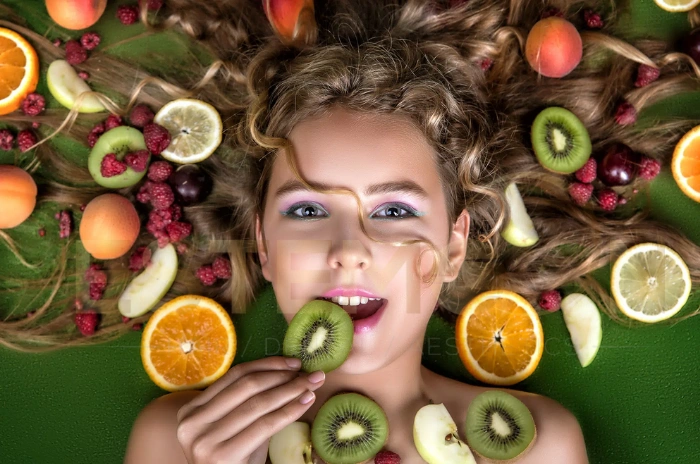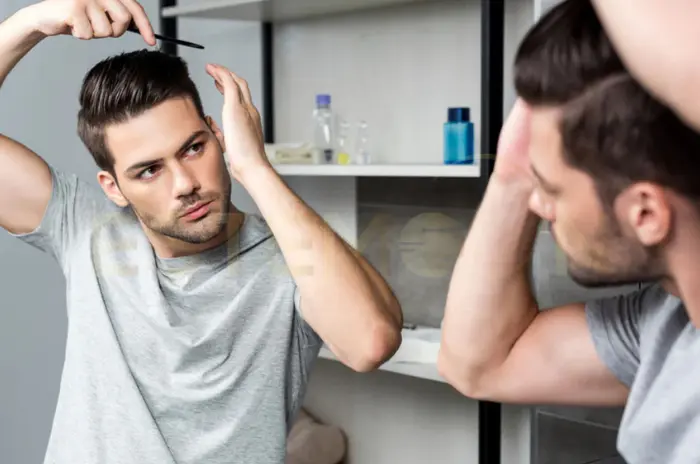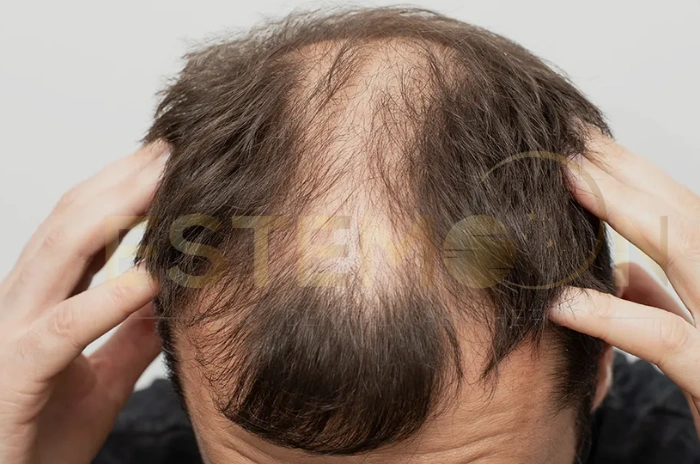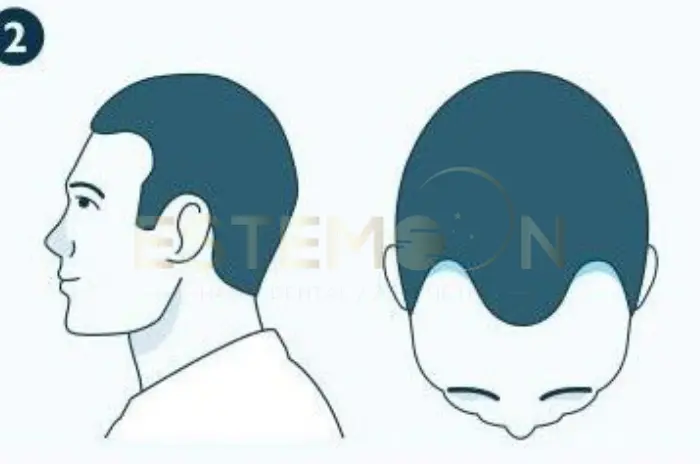Your hair is a direct reflection of your overall health and nutrition. What you eat plays a crucial role in determining whether your hair grows strong, thick, and healthy, or becomes weak, brittle, and prone to loss. Understanding the connection between diet for healthy hair and implementing the right nutritional strategies can transform your hair’s appearance from the inside out.
Hair follicles are among the most active cells in your body, requiring a constant supply of nutrients to function properly. When your body lacks essential vitamins, minerals, and proteins, your hair often shows signs of deficiency first. By incorporating specific hair growth foods into your daily routine, you can provide your hair with everything it needs to thrive.
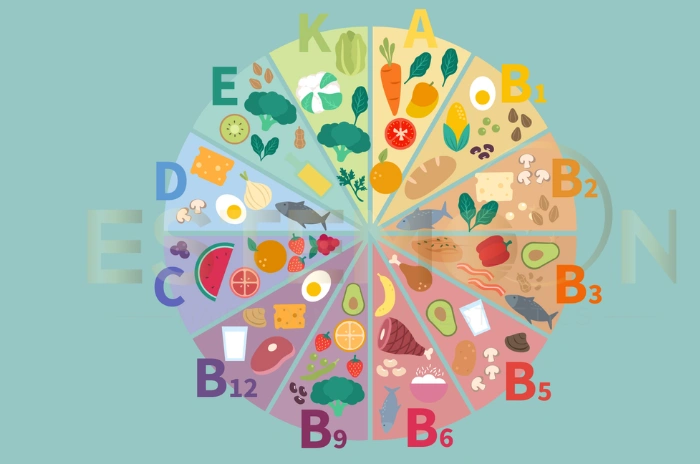
Key Nutrients Your Hair Needs to Grow
Hair growth depends on several essential nutrients working together to support the hair growth cycle. Biotin for hair growth is perhaps the most well-known nutrient, as it helps produce keratin, the protein that makes up your hair structure. Biotin deficiency can lead to hair thinning and loss, making it a critical component of any diet for hair growth.
Protein for hair growth is equally important since hair is primarily made of protein. Without adequate protein intake, your hair may become weak, thin, and break easily. Your body needs complete proteins containing all essential amino acids to build strong hair strands.
Iron for hair health cannot be overlooked, as iron deficiency is one of the most common causes of hair loss, especially in women. Iron helps red blood cells carry oxygen to hair follicles, and without sufficient iron, follicles can’t function properly. Zinc for hair growth supports hair tissue growth and repair while keeping oil glands around follicles working correctly.
Vitamin C for hair acts as a powerful antioxidant that protects hair follicles from damage caused by free radicals. It also helps your body absorb iron more effectively and is essential for collagen production, which strengthens hair structure.
Top Foods to Support Hair Growth and Strength
The best foods for hair growth include a variety of nutrient-dense options that provide multiple benefits. Understanding which foods deliver the most powerful nutrients for hair growth helps you make informed dietary choices.
| Food | Key Nutrients | Hair Benefits | Serving Size |
|---|---|---|---|
| Eggs | Protein, biotin, B vitamins | Keratin production, strengthens hair | 1-2 eggs daily |
| Salmon | Omega-3, protein, vitamin D | Adds shine, supports density | 3-4 oz, 2x weekly |
| Spinach | Iron, folate, vitamins A & C | Prevents loss, conditions scalp | 1 cup cooked |
| Berries | Vitamin C, antioxidants | Protects follicles, boosts collagen | 1/2 cup daily |
| Oysters | Zinc, protein, omega-3 | Tissue growth, prevents thinning | 3-6 oysters weekly |
| Sweet Potatoes | Beta-carotene, vitamin A | Sebum production, scalp health | 1 medium potato |
| Beans & Lentils | Protein, iron, zinc, folate | Growth support, prevents deficiency | 1/2 cup cooked |
Eggs for hair health are exceptional because they contain complete protein and biotin in optimal ratios. Fatty fish for hair growth provides essential omega-3 fatty acids that keep hair lustrous. Spinach for hair delivers iron to prevent deficiency-related hair loss.
How Your Diet Directly Affects Hair Health
Your dietary choices have a profound impact on the hair growth cycle, which consists of three phases: anagen (growth), catagen (transition), and telogen (resting). Poor nutrition can shorten the anagen phase and prolong the telogen phase, resulting in thinner hair.
When you don’t consume enough nutrients for hair growth, your body prioritizes essential organs over hair follicles. This means hair receives nutrients last, making it vulnerable to nutritional deficiencies. Iron deficiency hair loss demonstrates how diet directly affects hair health.
Restrictive dieting and eating disorders can trigger telogen effluvium, where hair follicles enter the resting phase simultaneously. This results in noticeable thinning several months after nutritional stress. Hormonal hair loss can also be influenced by diet, as foods high in refined sugars may worsen hormonal imbalances.
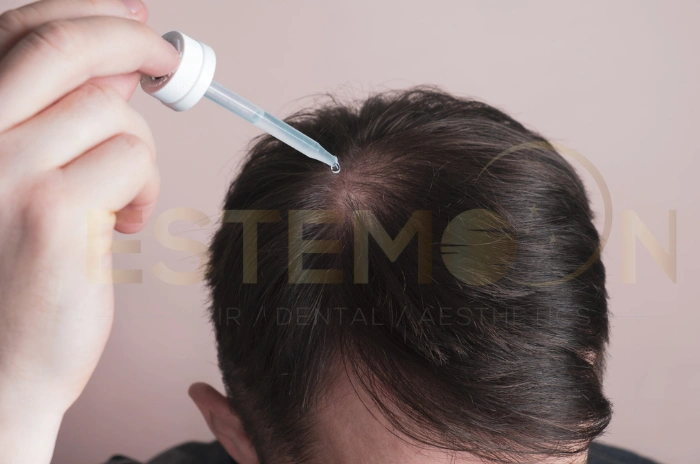
The Role of Protein and Fats in Healthy Hair
Protein for hair growth serves as the foundation of hair structure. Hair is approximately 95% protein, specifically keratin. Without adequate protein intake, your body cannot produce strong, healthy hair strands. Complete proteins from eggs, fish, lean meats, and legumes provide essential amino acids for optimal hair growth.
Spreading protein consumption throughout the day ensures hair follicles have a steady amino acid supply. Aim for 20-25 grams of protein at each meal to support foods for hair growth effectively.
Healthy fats, particularly omega-3 for hair health, maintain scalp health and hair shine. These fats keep hair follicles healthy and may reduce inflammation contributing to hair loss. Omega-3 fatty acids also help absorb fat-soluble vitamins like vitamin D, important for follicle health.
Monounsaturated fats from avocados, nuts, and olive oil help maintain scalp moisture and prevent dry, brittle hair. These healthy fats support hormone production, which directly affects hair growth patterns.
Using Vitamins and Minerals to Prevent Hair Loss
Biotin for hair growth is essential for converting nutrients into energy and supporting keratin production. While deficiency is rare, supplementation may benefit those with thinning hair. Natural sources include eggs, nuts, seeds, and sweet potatoes.
B vitamins work together to support hair health. Folate helps create red blood cells that carry oxygen to hair follicles. Vitamin B12 supports red blood cell formation and may help prevent hair loss. Vitamin C for hair supports collagen production and enhances iron absorption.
Iron for hair health is crucial for preventing common hair loss types. Women are particularly susceptible to iron deficiency. Combining iron-rich foods with vitamin C sources enhances absorption and maximizes hair growth benefits.
Zinc for hair growth supports hair tissue growth and repair. Zinc deficiency can cause hair loss and slow regrowth. Oysters for hair growth are the richest zinc source, but pumpkin seeds, chickpeas, and cashews also provide significant amounts.
Omega 3 Rich Foods That Support Hair Health
Omega-3 for hair health comes primarily from fatty fish, but plant-based sources also contribute to hair wellness. Fatty fish for hair growth includes salmon, mackerel, sardines, and herring, providing EPA and DHA omega-3 fatty acids.
Salmon stands out among fatty fish for hair because it combines omega-3s with high-quality protein and vitamin D. Regular salmon consumption may improve hair density and reduce hair loss. Aim for two servings of fatty fish weekly to maximize omega-3 for hair benefits.
Plant-based omega-3 sources include flaxseeds, chia seeds, walnuts, and hemp seeds. While these provide ALA omega-3s, they still support hair health. Grinding flaxseeds enhances absorption and bioavailability for better results.
Oysters for hair growth provide both omega-3 fatty acids and exceptionally high zinc levels. This combination makes oysters one of the most powerful foods for healthy hair available.
The Role of Iron and Vitamin D in Preventing Hair Loss
Iron deficiency hair loss is particularly common among women and can cause diffuse thinning across the scalp. Iron helps red blood cells carry oxygen to hair follicles, and without adequate iron, follicles cannot function properly. This hair loss type is often reversible with proper supplementation and dietary changes.
The best iron sources include lean red meat, poultry, fish, and organ meats. Plant-based sources include spinach for hair growth, lentils, tofu, and quinoa. Combining iron-rich foods with vitamin C for hair sources like citrus fruits significantly improves iron absorption.
Vitamin D plays a crucial role in hair follicle health and the hair growth cycle. Research suggests vitamin D deficiency may contribute to alopecia and other hair loss forms. Vitamin D receptors are present in hair follicles, and this vitamin helps create new follicles.
Fatty fish for hair provide both omega-3s and vitamin D, making them excellent foods for hair growth. Other vitamin D sources include fortified foods and egg yolks. Many people benefit from vitamin D supplementation, especially in winter months.
Building a Balanced Diet for Optimal Hair Growth
Creating an effective diet for healthy hair requires combining essential nutrients in appropriate proportions. Start each day with protein-rich foods like eggs for hair health or Greek yogurt with berries for hair antioxidants. This provides hair follicles with immediate building blocks for growth.
Include beans and lentils for hair protein and iron at lunch or dinner. These legumes also provide folate and zinc, making them excellent foods for hair growth. Pair them with vitamin C-rich vegetables to enhance iron absorption.
Selenium for hair health comes from Brazil nuts, tuna, and sunflower seeds. Just one Brazil nut daily provides adequate selenium for hair health. This mineral helps preserve hair structure and may prevent oxidative stress-related hair loss.
Planning meals around hair growth nutrients ensures consistent nutrient delivery to hair follicles. Include variety in colors and textures to maximize nutrient diversity. Foods for healthy hair should make up the majority of your diet, with processed foods kept minimal.
FAQs About The Best Guide to Eating Healthy for Hair Growth
What foods are best for hair growth?
The best foods for hair growth include eggs, fatty fish like salmon, spinach, berries, nuts, seeds, beans, and lean meats, which provide essential proteins, vitamins, and minerals needed for healthy hair development.
How do vitamins affect hair health?
Vitamins like biotin for hair, vitamin C, and B vitamins support keratin production, collagen synthesis, and nutrient absorption, while deficiencies in these vitamins can lead to hair thinning, breakage, and slowed growth.
Can my diet cause hair loss?
Yes, poor nutrition, restrictive dieting, iron deficiency hair loss, and inadequate protein intake can trigger various types of hair loss, including telogen effluvium and diffuse thinning throughout the scalp.
Is protein important for hair growth?
Protein for hair growth is absolutely essential since hair is approximately 95% protein, and without adequate protein intake, your body cannot produce strong, healthy hair strands or maintain normal growth cycles.
Follow us on social media for updates, tips, and patient success stories:

